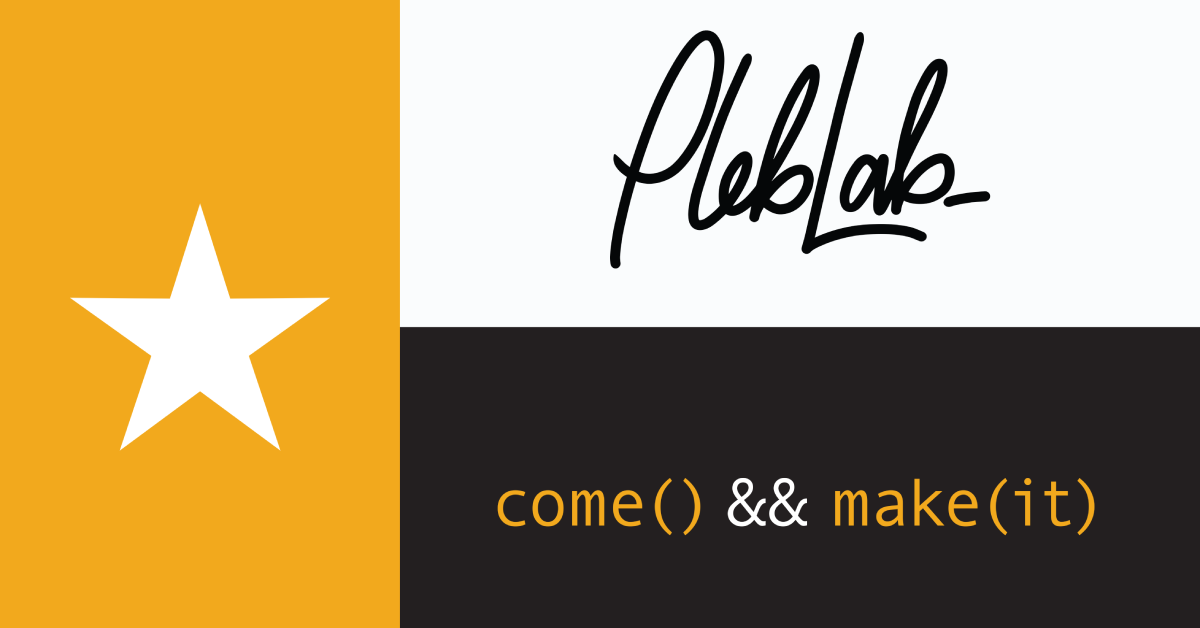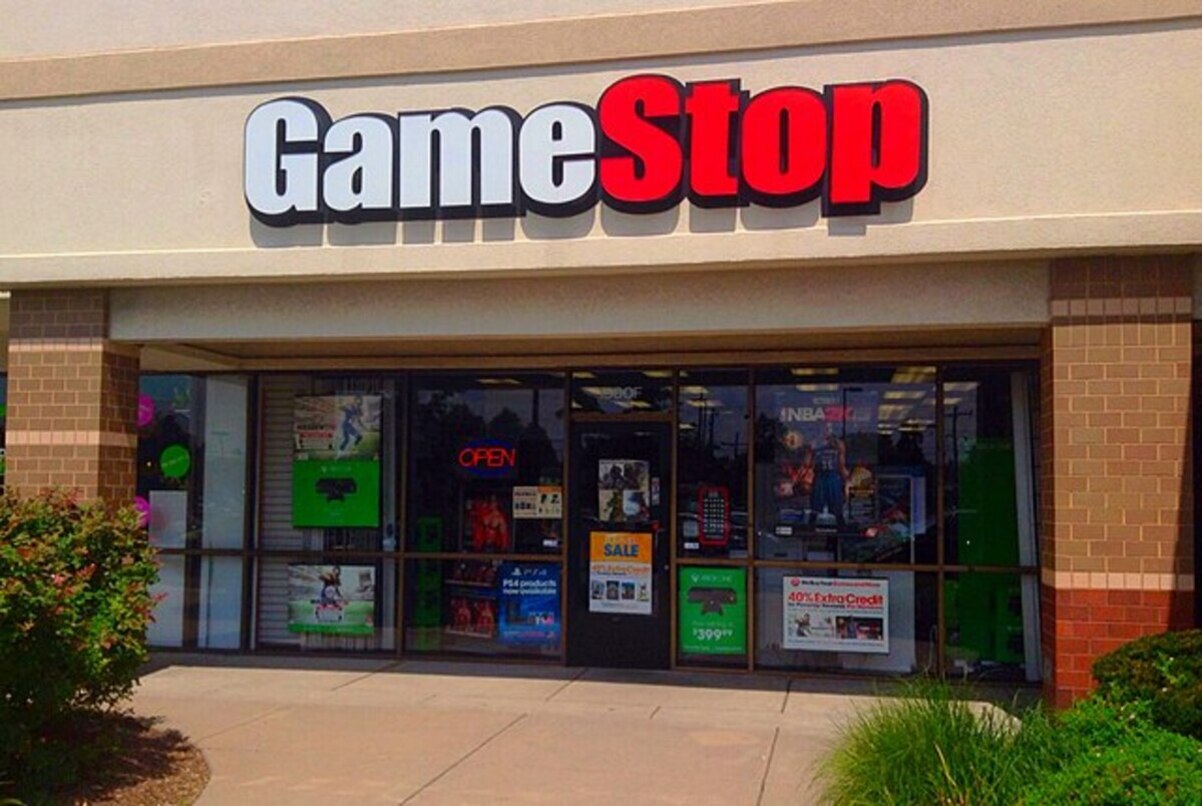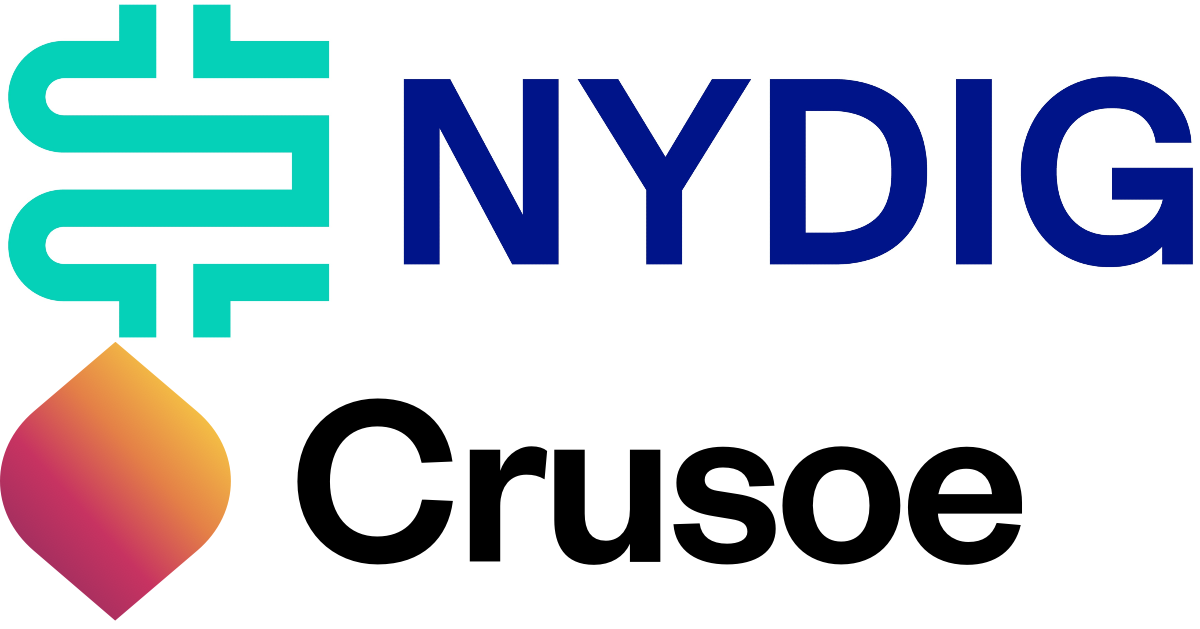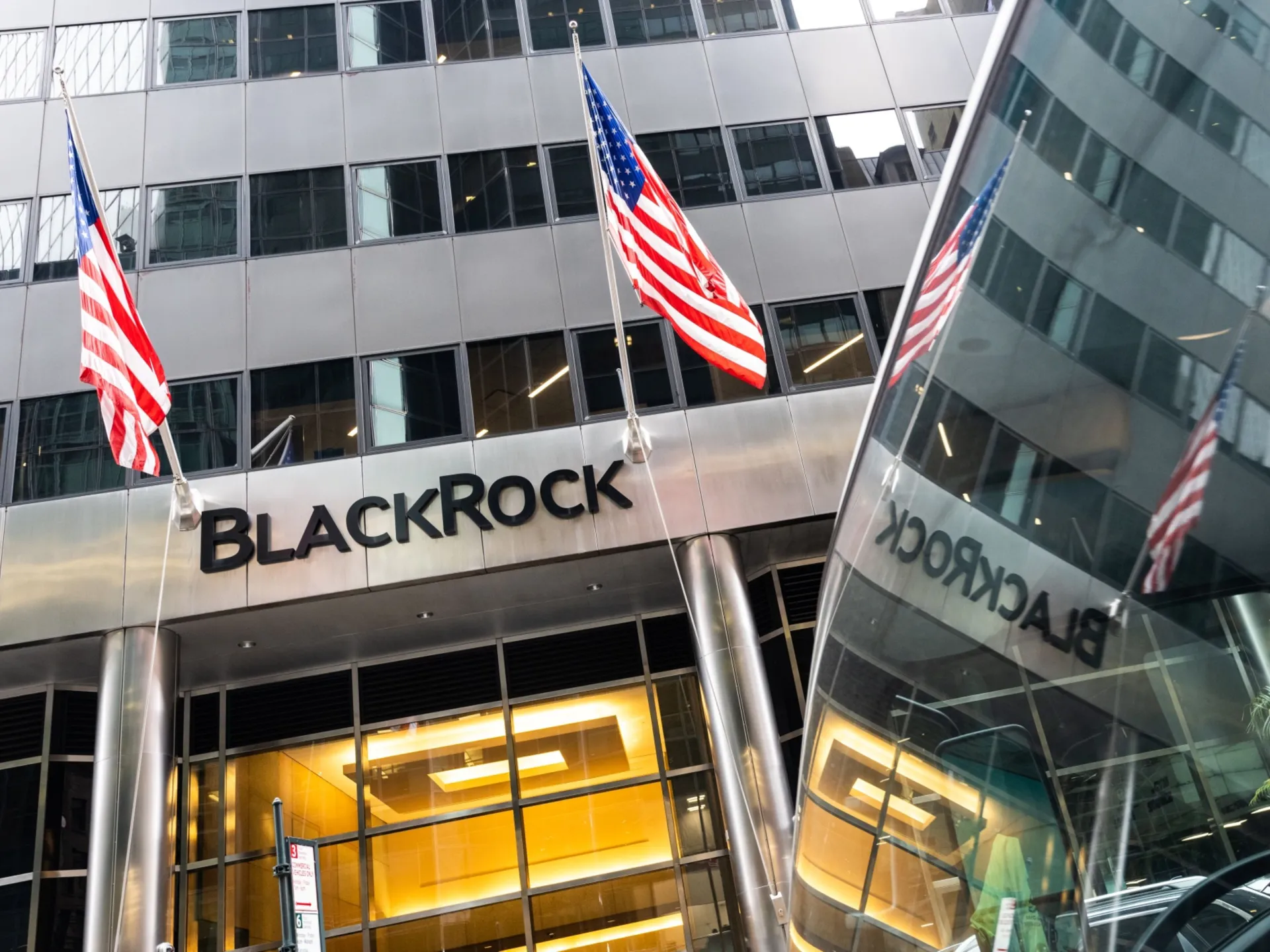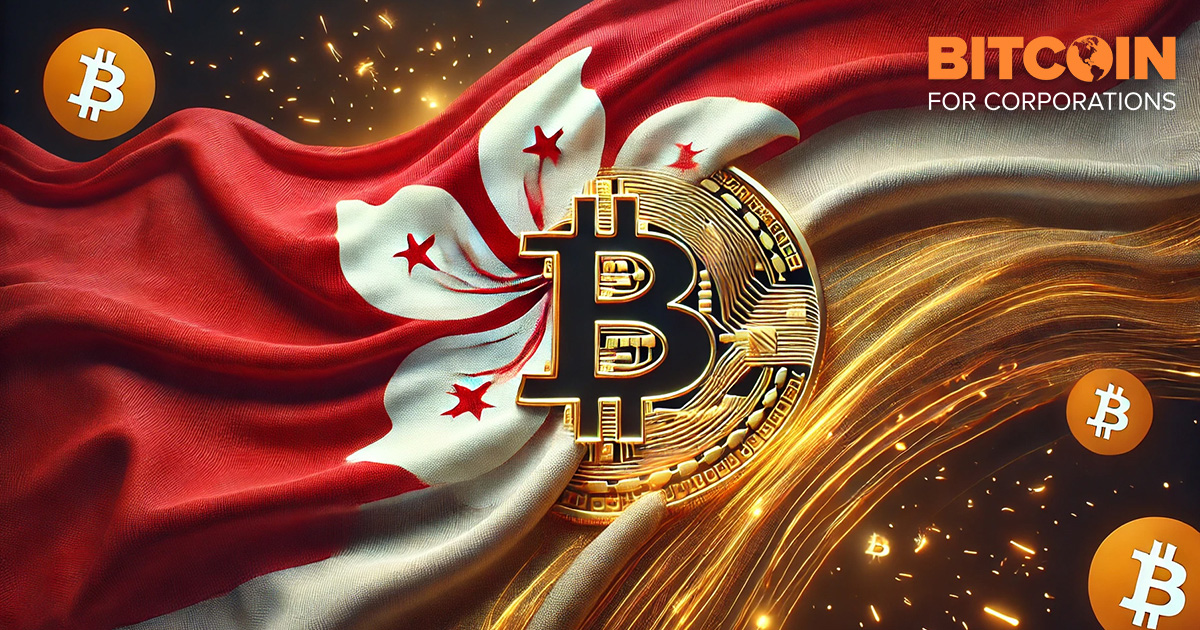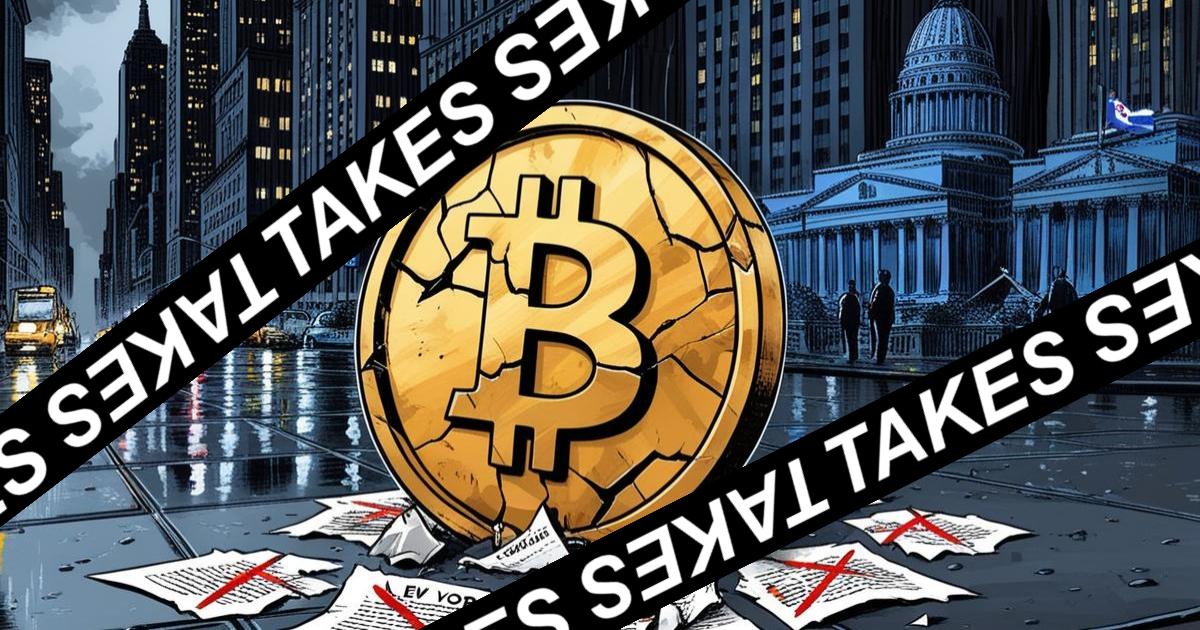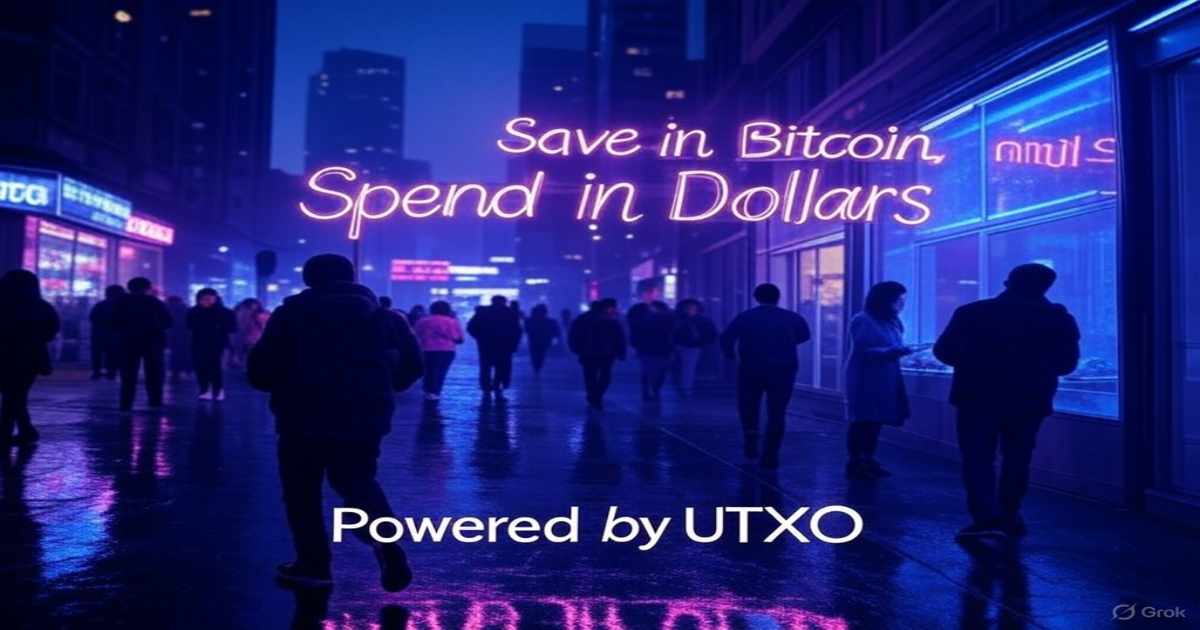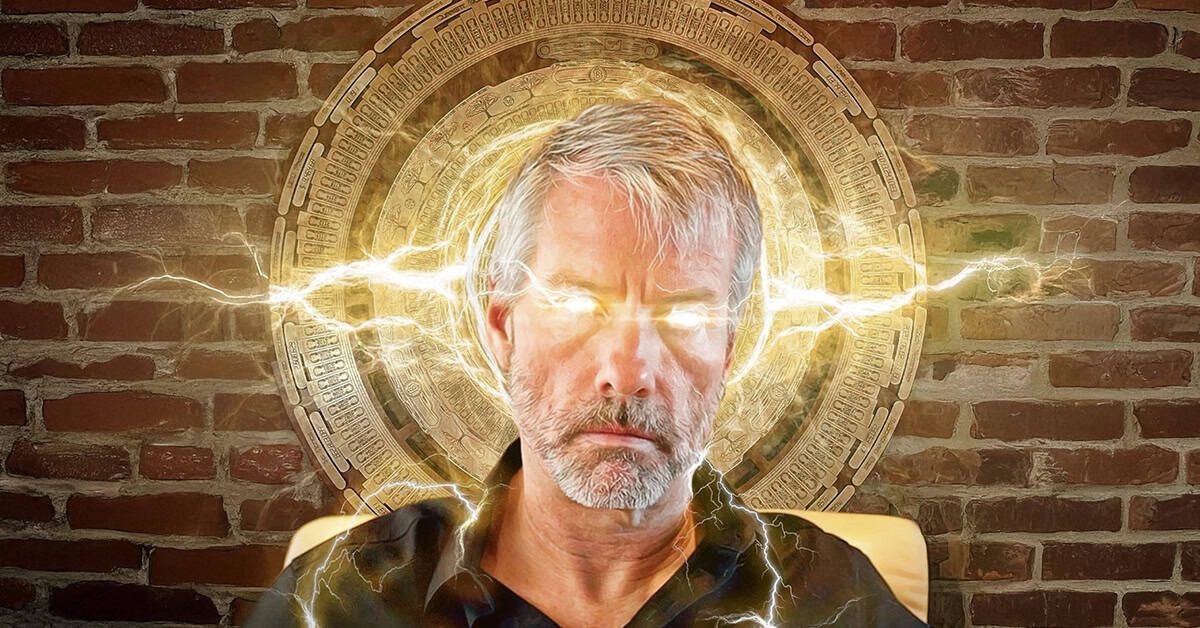Category: Crypto
How PlebLab is Shaping the Future of Bitcoin Startups in Austin
How PlebLab is Shaping the Future of Bitcoin Startups in Austin
Born in the heart of Texas, PlebLab.dev is a well-known name within the Bitcoin start-up world. And yet, most people who have heard about this niche Bitcoin community in Austin are probably unaware of their wins and influence.
Started as a coworking space out of Capital Factory in 2021 by a couple of Bitcoin enthusiasts, PlebLab has grown into a Mecca of the Bitcoin start-up ecosystem in the United States. They host various events and meetups throughout the year and have become a reliable work environment for Bitcoiners, whether living in Austin or just passing through.
“In art school, I had this professor who’d make us stop after an hour of creating, walk around, and give honest feedback on each other’s work—it built a collaborative vibe where we can grow together. That stuck with me,” Car González, CEO of PlebLab, recalls. So when I took over PlebLab, I asked: ‘How do I make it more collaborative? How do I make it more about that, not just coworking?’ When you say coworking, it’s literally just working. How boring is that—working among other people who are also working? That’s not fun.”
Yet more than just a “coworking” space, PlebLab has become a “community accelerator for the Bitcoin era” with multiple successful Bitcoin companies and developer celebrities going through it since its inception.
Genesis
Car González, Keyan Kousha, and Kyle Murphy – foudners of PlebLab
Founded out of the dream to build on Bitcoin and grow a local community, PlebLab got its first office in Capital Factory, a renown tech coworking hub in Austin in 2021. The three cofounders, Car González, Keyan Kousha, and Kyle Murphy started doing Bitcoin meetups that grew to crowds of over 200 people. Among them, various entrepreneurs and Bitcoin developers started to stick around, asking to co-work with them out of Capital Factory.
Over time PlebLab grew into different office locations, currently installed next to the Unchained Capital offices and the Bitcoin Park (Formerly Bitcoin Commons) in downtown Austin (at 6th St. and Congress Ave.). With more space, talent, and experience, PlebLab transformed from a coworking space into a mix between a hacker garage and a start-up incubator.
Today they offer various membership packages, mentorship, and a wealth of resources to start-ups that join them, but this is not a pay-to-play “Bitcoin We-work”: Memberships can be denied depending on the goals and purpose of the project. It’s more akin to a private Bitcoin club for builders and technologists than anything else.
“I really think we’re an accelerator for the Bitcoin era. How you do that in an open source, cypherpunk way is you don’t give somebody 500k on day one and say, ‘You got three months to make it or see you later.’ To me, that sounds like a fiat-era thing,” said Car.
Main Events
The main events held by PlebLab are Top Builder and Startup Day. Often taking place within six months of each other.
“Top Builder is the Top Chef of Bitcoin. We try to find the latest, greatest builders, pile them in, and get them to build an MVP or something pitchable,” said Car, describing the event which functions like a three-month hackathon, exposing finalists to VCs and angel investors.
Startup Day on the other hand is a short conference that provides a platform for Bitcoin start-ups to present their work, meet talent, and get exposure in the Bitcoin world. In Car’s words it is meant to “inspire people to go from the sidelines to building their own company. They’ll see themselves in those people talking on stage.”
Judge it by its Fruit
A variety of big names within the Bitcoin start-up world have spent time in PlebLab, Car was very hesitant to take credit for the work of others, and stressed his admiration for the founders and leaders whose journey he has witnessed.
“Seeing their journey go from a person you meet, shake hands with initially, to where they are—seeing the numbers they have, and when they get to a point like base camp, a raise, a pre-seed or seed”, Car said. “That base camp for me is just, ‘Cool, they did it.’ Now, let’s go help somebody else. That’s the thing I love—the shipment of the code, so to speak—We just try to be good stewards of that.”
Nevertheless, the track record is impressive. Here’s a quick overview of Bitcoin projects, companies, and developer celebrities closely associated with PlebLab:
Jippi – Winner of Top Builder 2025
Lead by Oliver, Jippi.app is a beautiful and fun Bitcoin app designed with Gen Z in mind. Echoing the success of Pokemon Go, Jippi invites young people to explore their cities in search of Bitcoin Beasts, charming little 3D creatures that hide in augmented reality, waiting for future owners with sats rewards.
The app has been in development for over a year and just last week won the first prize in PlebLab’s Top Builder competition among fierce competition. Mind-blowing to the judges and audience alike, Jippi has a live, functioning app, man-on-the-street surveys, and app tests in a local university. As well as a masterful presentation of the rationale and vision for Jippi, the app may have the potential to go viral in the United States — and with it bring a new generation into Bitcoin.
Stacker.news
Started in 2021 by one of PlebLab’s cofounders Keyan Kousha, Stacker.news has quickly become a hub of news for many tech-savvy Bitcoiners. Boasting an open source Lightning-powered Reddit, the platform has gathered an active and loyal fan base that reward each other with sats for every upvote, often being early to integrate the latest technologies in the Bitcoin-social media tech scene.
Zaprite
Started at the end of 2021 by John Magill, Zaprite has quickly grown into a full payment processing suite for businesses, supporting both Bitcoin and Lightning payment rails, settling to fiat as desired by merchants, supporting event ticketing and all the accounting and invoicing tools necessary for a modern merchant.
Zaprite made recent history by being the interface Donald J. Trump used to pay for a burger with bitcoin at the Bitcoin Pub Pub Key in New York.
(TRUMP BUYS BURGER WITH BITCOIN FROM ZAPRITE – EMBED)
Mutiny Wallet
Launched in early 2023 and led by celebrity Bitcoin developers Ben Carman and Tony Giorgio, Mutiny Wallet quickly gained popularity among Lightning power users as a fully featured and innovative Bitcoin app. It consistently integrated cutting-edge payments technology like e-cash-denominated payments and Nostr integration, while rocking its signature red-and-black color scheme.
Following the arrest of Samourai Wallet developers and the consequent chilling effect on Bitcoin self-custody wallet development, Mutiny Wallet announced it would be sunsetting the project, nevertheless demonstrating incredible technical ability and leaving behind a sophisticated set of open source software tools for the Lighting, Nostr, and e-cash ecosystem.
Nifty (Bitcoin++)
As a Bitcoin and Lightning developer, Nifty became famous for her developer education efforts via Base 58, her world-renowned developer events called Bitcoin++, her relentless work ethic, impressive travel schedule, and of course her charm, bringing together Bitcoin developer communities all over the world, multiple times a year.
Nifty has quickly become a recognized and influential figure in the Bitcoin start-up ecosystem, including a seat on the board of directors of Opensats, a public charity focused on funding open source Bitcoin projects of all types, with a special focus on Nostr – the Bitcoin native social media protocol. In her journey to stardom, she spent significant time at PlebLab, and is still often seen at Austin Bitcoin events.
Speaking of which, Nifty’s next Bitcoin++ event will be in Austin, TX on May 7-9, diving deep into the Bitcoin Mempool.
Supertestnet
An early member of the Plelab and Bitcoin Austin scene, Supertestnet appeared out of nowhere in 2021, quickly mastering the art of creating Bitcoin prototypes in JavaScript. He has since implemented cutting-edge Bitcoin technologies like BitVM, even participating in the first Ark mainnet pool, the only other noncustodial Bitcoin layer-2 scaling solution, and is an avid user of X and Nostr.
Supertestnet’s many open source projects, passion for Bitcoin, and unshakable integrity have granted him quick recognition in the Bitcoin start-up ecosystem and likely a fair mention in the annals of Bitcoin history.
Cascdr
Led by Jim, AI engineer and ruthless Bitcoin maxi, Cascdr’s mission is to bring the power of AI and Bitcoin together with strong privacy foundations and a full suite of cool AI apps and workflows. His most recent hit is PullThatUpJamie.ai a podcast search engine that transcribes voice content making it searchable, and facilitating the creation of sharable podcast clips.
BRANTA
Led by Keith, Branta is a cyber security company focused on limiting man-in-the-middle attacks for Bitcoin payments work flows, such as the injection of malicious addresses or invoices in a merchant interface. Grown from the PlebLab accelerator, Branta has already had successful pre-seed raises and was a top-five finalist at the Top Builder contest.
Topher
A renowned Bitcoin developer in his own right and a regular at PlebLab, Topher has shipped a variety of open source Bitcoin tools such as Tapscript, a library for managing Taproot, Schnorr Signatures, and Bitcoin transactions.
Among other things, Topher and Austin (app developer) are currently working on Frostr, a key management solution for private digital identities. Specifically, Frostr is built to solve issues of the sort in Nostr, the Bitcoin-adjacent social network protocol that’s become very popular with Bitcoin users. It reimagines “Frost,” the new and rising multisignature standard in Bitcoin wallets, and uses it to solve key rotation problems in Nostr. A bit of a technical project, but one which I believe is profoundly useful and I’ll be covering in more detail very soon.
Christopher David, Open Agents
Christopher, a seasoned Bitcoin developer and entrepreneur, is currently working on Open Agents, an AI platform with deep integration with Git processes rocking a dark-cypherpunk aesthetic and a strong focus on the privacy of its users.
There are many more projects that are either in development or have gone through PlebLab through the years, if you are interested you can find them at PlebLab.dev.
As a bonus, I’ll leave you with this cool Bitcoin Magazine yoyo I happened to find at PlebLab.
This post How PlebLab is Shaping the Future of Bitcoin Startups in Austin first appeared on Bitcoin Magazine and is written by Juan Galt.
GameStop Approves Adding Bitcoin to Treasury Reserves
GameStop Approves Adding Bitcoin to Treasury Reserves
GameStop Corp. (NYSE: GME) announced that its board of directors has unanimously approved an update to the company’s investment policy, allowing Bitcoin to be held as a treasury reserve asset. The decision follows a series of engagements between GameStop Chairman and CEO Ryan Cohen and prominent figures like Michael Saylor in the Bitcoin industry.
On February 8, Cohen met with Strategy Chairman and well-known Bitcoin advocate Michael Saylor, sparking speculation that GameStop may be adding BTC to its balance sheet. A couple weeks after, Cohen responded to CoinDesk via a tweet stating “Letter received.” after receiving a letter from Strive Asset Management CEO Matt Cole, which urged GameStop to adopt Bitcoin as a reserve asset.
In its announcement, GameStop noted that its investment policy now permits investments in “certain cryptocurrency assets, including Bitcoin and U.S. dollar-denominated stablecoins.” The company also acknowledged associated risks, including the potential impact of these investments on its financial results and internal financial controls.
The policy update was disclosed alongside the company’s financial results for the fourth quarter and full fiscal year ended February 1, 2025.
For the fourth quarter, GameStop reported net sales of $1.283 billion, a decrease from $1.794 billion in the same period the prior year. Selling, general and administrative (SG&A) expenses fell to $282.5 million, compared to $359.2 million in the fourth quarter of the previous year. Net income for the quarter was $131.3 million, up from $63.1 million a year earlier. Adjusted EBITDA for the quarter was $96.5 million, compared to $88.0 million in the prior year’s fourth quarter.
GameStop also disclosed that it held $4.775 billion in cash, cash equivalents, and marketable securities at the end of the quarter. The company completed its exit from Italy and finalized the wind-down of store operations in Germany during this period.
For the full fiscal year 2024, GameStop reported net sales of $3.823 billion, down from $5.273 billion in fiscal year 2023. SG&A expenses for the year were $1.130 billion, compared to $1.324 billion in the prior year. Net income for the year reached $131.3 million, significantly higher than the $6.7 million reported in fiscal year 2023. Adjusted EBITDA for the full year was $36.1 million, compared to $64.7 million in the previous year.
The company has not yet disclosed how much Bitcoin it plans to purchase or when it will begin acquiring BTC, and CEO Ryan Cohen has not yet commented publicly on the addition of Bitcoin to GameStop’s balance sheet at the time of publishing.
This post GameStop Approves Adding Bitcoin to Treasury Reserves first appeared on Bitcoin Magazine and is written by Nik.
Stablecoins Are The CBDCs
People like to refer to Bitcoin as a trojan horse that we are going to smuggle into the legacy financial system and government. Stablecoins are a trojan horse into our system that has already been successfully smuggled in.
Stablecoins are heralded as some savior of the developing world, a positive escape hatch for them from decrepit financial systems and local currency risks. Well that’s the thing about traps, they have to entice you to wander into them or they don’t function very well as traps do they?
All of the stablecoin volume of significance happens on highly centralized blockchains, issued through highly centralized smart contracts that almost entirely (with rare exceptions like Liquid currently) have the power to arbitrarily freeze or confiscate any outstanding stablecoin tokens. A single party, the issuer, for the super majority of tokens they have issued, can freeze and seize their funds. Anywhere. Anyone. Globally.
These blockchains almost all function on an account model as well, meaning that default behavior associates every transaction a user makes with a single public address identifier, putting their entire transactional history in full view of the world with a single glance. No UTXO clustering, no fancy analysis needed, just look at the account address.
To compound things even further, because all of these chains are highly centralized, there is no software to speak of that general users interact with that is fully validating. Wallets connect to one of a few highly centralized servers every time they interact with their account and associate their IP address with that account.
This is a trap. Pure and simple. The United States does not need a CBDC, it has US Dollar stablecoins. They already function in a way that concentrates all private information that could connect individuals to their on-chain activity in a few hands. All it takes is one interaction with a KYC exchange, or an address posted online, connection to a social media account, and you’re identified.
Stablecoins are just as programmable as a CBDC. Just as capable of implementing restrictions like expiring money, or money that can only be spent in certain ways or certain places. What’s the only difference between the two that matters? Adoption. Stablecoins are viewed favorably, and highly used, whereas most places the sentiment is very against CBDCs.
All of the pieces are there. The central point of control to seize the tokens, the total lack of privacy that makes a single association of KYC data a permanent surveillance mark, and the complete concentration of where that private information will wind up. All there to be snatched up and collected by the US government whenever it wants, and used to coerce stablecoin issuers into acting how they see fit.
These stablecoins are US dollar proxies, they must interact with the legacy financial system, they have to hold actual dollars and treasuries. It is necessitated by how they work. They are under the government’s thumb, particularly the US government’s thumb, whenever the government wishes it.
It blows my mind that people not only accept the process of this happening, but some actively cheer it on. Bitcoin aims to be a truly sovereign and free money that enables anyone to do whatever they want with their own wealth. Yet we are now apparently cheering on the exact opposite of that riding Bitcoin’s coattails to adoption in parallel.
Help me make that make sense.
CBDCs are a bogeyman to keep us distracted from the very real threat of a financial surveillance system that’s already here, stablecoins. We should be confronting that, not sweeping it under the rug.
This article is a Take. Opinions expressed are entirely the author’s and do not necessarily reflect those of BTC Inc or Bitcoin Magazine.
This post Stablecoins Are The CBDCs first appeared on Bitcoin Magazine and is written by Shinobi.
NYDIG to Acquire Crusoe’s Bitcoin Mining Operations
NYDIG to Acquire Crusoe’s Bitcoin Mining Operations
NYDIG has announced plans to acquire Crusoe’s bitcoin mining operation, including its Digital Flare Mitigation (DFM) business. The transaction is subject to regulatory approvals, customary consents, and final closing. When completed, approximately 135 Crusoe employees will join NYDIG and continue operating the business under its ownership. No job eliminations are expected as a result of the acquisition. The financial terms of the deal have not been disclosed.
“Our partnership with Crusoe was founded on a shared cultural alignment and mutual commitment to driving advancements at the intersection of power and compute,” NYDIG CEO Tejas Shah stated. “Crusoe has built an extraordinary bitcoin mining business by demonstrating remarkable innovation—bringing together the industry’s top talent to solve complex challenges and unlock untapped energy sources. We’re incredibly excited to integrate this world-class team and their capabilities into our growing business.”
Crusoe, founded in 2018, developed DFM technology to convert natural gas from oil fields, which would otherwise be burned off as flares, into electricity for modular data centers. The company initially used these data centers for bitcoin mining before expanding into artificial intelligence (AI) workloads powered by GPU clusters. Crusoe’s approach to colocating computing with energy production has contributed to reducing environmental impact while utilizing stranded energy sources.
Crusoe’s bitcoin mining operations have deployed over 425 modular data centers, accounting for more than 250 megawatts of power across multiple states, including Colorado, North Dakota, Montana, Wyoming, New Mexico, Utah, Texas, and internationally in Argentina. According to the company, its DFM technology has mitigated 2.7 million metric tons of greenhouse gas emissions and prevented nearly 22 billion cubic feet of natural gas from being flared.
“The proof-of-work consensus mechanism in the bitcoin blockchain algorithmically incentivizes the convergence of energy and computing,” said Crusoe co-founder and CEO Chase Lochmiller. “Crusoe is proud to have been a pioneer in repurposing otherwise wasted energy resources such as gas flaring to power the bitcoin network. Our innovative approach to energy utilized for mining is uniquely complementary to NYDIG’s bitcoin custody, institutional trading, and mining businesses, creating a consolidated business that is more valuable than the sum of its parts. We will continue to channel the same energy-first mentality towards scaling AI infrastructure and accelerating the adoption and proliferation of AI in our everyday lives.”
Following the deal, Crusoe will shift its focus toward scaling AI infrastructure, building AI-optimized data centers, and expanding its Crusoe Cloud product offerings while continuing to develop energy solutions for its computing operations.
This post NYDIG to Acquire Crusoe’s Bitcoin Mining Operations first appeared on Bitcoin Magazine and is written by Nik.
BlackRock Launches Bitcoin ETP In Europe
BlackRock Launches Bitcoin ETP In Europe
Asset management giant BlackRock has launched its first bitcoin product in Europe: a physically backed bitcoin exchange-traded product (ETP).
The iShares Bitcoin ETP started trading Tuesday on Germany’s Xetra exchange and Euronext exchanges in Paris and Amsterdam. The ETP will trade under the ticker IB1T on Xetra and Euronext Paris and as BTCN on Euronext Amsterdam.
The new product comes after BlackRock debuted a bitcoin ETF in the U.S. last year. The U.S. ETF, iShares Bitcoin Trust (IBIT), has attracted over $50 billion in assets and has become the largest spot bitcoin ETF globally. BlackRock CEO Larry Fink has voiced scepticism of bitcoin but appears to have warmed up to bitcoin amid client demand.
By launching a European bitcoin ETP, BlackRock is giving institutional investors in the region exposure to bitcoin’s price performance in a familiar and regulated wrapper. Crypto ETPs have existed in Europe for years but lag U.S. bitcoin ETFs in assets.
BlackRock’s bitcoin ETP carries a management fee of 0.25%, reduced to 0.15% through a temporary fee waiver until year-end 2025. The ETP uses Coinbase for custody.
As the largest asset manager globally with over $10 trillion under management, BlackRock brings significant scale and distribution power. The move signals growing mainstream embrace of bitcoin as an emerging institutional asset class.
This post BlackRock Launches Bitcoin ETP In Europe first appeared on Bitcoin Magazine and is written by Vivek Sen Bitcoin.
HK Asia Holdings Becomes First in China to Adopt Bitcoin Treasury
HK Asia Holdings Becomes First in China to Adopt Bitcoin Treasury
HK Asia Holdings (HKEX: 1723), soon to be renamed Moon Inc., has made history as the first publicly traded company in Greater China to adopt a Bitcoin treasury strategy. In a recent discussion hosted by Allen Helm of Bitcoin For Corporations, new CEO John Riggins outlined the company’s pivot, its regulatory alignment with Hong Kong, and the broader momentum building across Asia.
Riggins, a longtime Bitcoin advocate with extensive experience across China and Southeast Asia, explained that the move was driven by both long-term conviction and a favorable shift in regulatory posture in Hong Kong. He said the company had spent months consulting with regulators, public market investors, and local partners before executing the transition.
Originally focused on SIM cards and prepaid tech products, HK Asia Holdings now aims to integrate Bitcoin both as a balance sheet asset and into its business model. This includes plans to roll out Bitcoin-related offerings through its retail footprint, such as ATMs and prepaid Bitcoin products.
The company’s first steps included the acquisition of 8.88 BTC during a post-acquisition period, followed by another 10 BTC purchase once the leadership transition was finalized—bringing its total holdings to 18.88 BTC, valued at over $1.7 million at the time of announcement. Riggins said further accumulation is planned, though it will proceed in accordance with Hong Kong’s measured but transparent regulatory guidance.
“We see it as a way to protect our balance sheet, and we see it as a way to diversify, our treasury with an eye on how the rest of the world is moving,” said Riggins.
The strategic intent goes far beyond speculation. Riggins framed Bitcoin as a hedge against macro uncertainty, a tool for long-term resilience, and a bridge to emerging global financial infrastructure. He also emphasized how corporate boards in the region are beginning to engage more seriously with the idea, pointing to MetaPlanet in Japan and Strategy in the U.S. as compelling precedents.
While Asia’s corporate Bitcoin adoption is still in its early stages, interest is growing fast. Riggins highlighted South Korea, Thailand, Malaysia, and Indonesia as markets with clear potential to follow suit. Much of the movement, he noted, is happening quietly behind the scenes—especially in China, where institutional stakeholders and state-connected investors are actively monitoring U.S. policy shifts and corporate adoption trends.
“I’m flooded with messages more and more from, people in the government, people, you know, institutional investors who are kinda watching this space closely looking for inside information about what’s happening here,” said Riggins.
Although no formal public moves have been announced by Chinese state entities, Riggins believes Bitcoin is already being held indirectly through government-affiliated organizations, including state-connected investment arms. He suggested these holdings may be more significant than publicly known. With the U.S. moving toward a strategic Bitcoin reserve, he sees China closely watching—and potentially following—if global policy momentum continues to shift.
Looking ahead, Moon Inc. plans to expand its Bitcoin holdings within Hong Kong’s regulatory framework and serve as a model for other Asian companies exploring similar strategies. The company will co-host Bitcoin Asia this August in Hong Kong, positioning itself as a regional trailblazer and helping catalyze broader corporate adoption across Asia.
Disclaimer: This content was written on behalf of Bitcoin For Corporations. This article is intended solely for informational purposes and should not be interpreted as an invitation or solicitation to acquire, purchase, or subscribe for securities. For full transparency, please note that BTC Inc., the parent company of UTXO Management, holds a stake in HK Asia Holdings Limited (1723.HK) in partnership with Sora Ventures and other entities.
This post HK Asia Holdings Becomes First in China to Adopt Bitcoin Treasury first appeared on Bitcoin Magazine and is written by Nick Ward.
Democrats Propose More Bad Bitcoin And Crypto Regulation
Democrats Propose More Bad Bitcoin And Crypto Regulation
On Friday, Maryland Delegate Adrian Boafo (D) and New York Assemblyman Clyde Vanel (D) sent a joint letter to Democratic Congressional leaders urging them to pass comprehensive crypto legislation at the federal level.
In the letter, the elected officials cited New York State as being a leader in crypto regulation and proposed that New York’s BitLicense be used as a model for what federal crypto regulation should look like. The letter’s authors also noted that New York State has placed a two-year moratorium on proof-of-work cryptocurrency mining that uses fossil fuels (seemingly citing this as something else the federal government might consider doing).
It was upon reading these points in the letter that I realized that Democrats are capable of putting forward Bitcoin and crypto policy ideas stupider than what former Vice President Harris proposed in October 2024, which was “a regulatory framework for cryptocurrency and other digital assets [that protects] Black men who invest in and own these assets.”
(Please note that I’m in favor of a regulatory framework that protects the right of Black men to invest in crypto assets. I’m also in favor of one that protects the right of Asian men, Hispanic men, White men, and Indigenous men to do the same. Oh, and I’d like for whatever Bitcoin and crypto policy we craft here in the U.S. to protect the right of women and transgender people of all races to invest in bitcoin and crypto, as well.)
With that said, let me break down why the U.S. federal government’s creating something comparable to New York’s BitLicense and putting a mining moratorium on Bitcoin miners that use any amount of fossil fuels would be a bad idea.
And please forgive me in advance for being emotional at points. This issue is personal to me, as I’m a resident of New York State and have experienced firsthand the damage that politicians and bureaucrats have done to the Bitcoin and crypto industry in the state.
The BitLicense
New York State requires that all virtual currency businesses that operate in the state obtain a BitLicense.
At face value, obtaining a license to operate a business seems harmless enough. But once you learn that it takes months to years to complete all of the paperwork and to jump through all of the hoops required to obtain one and that it costs upward of $100,000 to go through this process, you quickly see why so many established companies in the space — never mind the early-stage start-ups — don’t even start the process.
Because of the BitLicense, New York State residents cannot use reputable platforms like Strike, River, Swan, and Kraken. Nor can they use Lightning on CashApp or the fiat-to-bitcoin exchange on Fold. This is only to name a few of the Bitcoin/crypto products and services that we can’t use because of red tape.
But what’s perhaps more of a slap in the face is that when you attempt to use some of these platforms as a New York State resident, you’re presented with messages such as “This exchange doesn’t serve residents of jurisdictions including New York State, Iran, Syria and North Korea.”
TRULY FUCKING STAGGERING THE COMPANY THAT NEW YORK POLITICIANS AND BUREAUCRATS HAVE PUT NEW YORK RESIDENTS IN.
If we were to apply the BitLicense on a federal level, we would deeply stifle innovation and entrepreneurship, as not only would we greatly hinder the Bitcoin and crypto companies that have the money and resources to go through the process of obtaining a federal BitLicense, but we’d create a moat around them while creating a scenario in which the start-ups that can’t afford to go through the process either close up shop or simply not serve U.S. citizens.
A federal BitLicense would be a major hindrance to President Trump’s accomplishing his goal of making the United States the Bitcoin superpower and the crypto capital of the world. (Maybe that’s why these Democrats proposed it?)
The Mining Moratorium
While I know that burning fossil fuels is detrimental to the environment and I believe that human-made climate change is a real thing, I’m also a proponent of people being gainfully employed and industries being able to flourish.
And in upstate New York, there’s been a notable lack of both since factories began closing down in the region after World War II.
What’s replaced gainful employment in factories in many parts of upstate New York are service-sector jobs that barely enable workers to make ends meet.
The urban blight in most cities in upstate New York is so palpable that it’s nauseating.
What we could do to revive upstate New York is invite the Bitcoin mining industry in. Sure, Bitcoin mining companies might burn some fossil fuels to power their operations at first, but as Bitcoin mining incentivizes renewable energy production, they could move away from fossil fuels as their source of energy.
Also, if the likes of Assemblyman Vanel and New York State’s governor, Kathy Hochul (D), are so against companies that burn fossil fuels then 1) Why haven’t they put a moratorium on all companies in the state that use fossil fuels? and 2) Why haven’t they enacted laws that do things like stopping all New York residents from using cars that have internal combustion engines?
I ask these questions rhetorically, as I know I’d never get answers from either of them on this, because the mining moratorium is more for show — virtue signaling, if you will — than anything.
If they really wanted to make a concerted effort to stop the environmental damage that burning fossil fuels causes in New York, they’d do much more than prohibit Bitcoin mining companies that use fossil fuels from operating in the state (and they’d take down the economy of New York in the process).
If we were to apply such a mining moratorium on a federal level, we’d not only put many Americans out of work, but we’d also cede much of the hashrate to hostile foreign powers who are using fossil fuels to mine bitcoin anyway.
My Plea To Democrats
Please stop proposing regulation that will hurt an industry that could otherwise provide many Americans with high-quality jobs.
Please stop listening to the likes of Delegate Boafo, Assemblyman Vanel, or any of the backward-thinking Democrats to which this letter was addressed, including Rep. Maxine Waters (D-CA) and Senator Elizabeth Warren (D-MA).
Instead, start taking queues from more forward-thinking Democrats like Congressman Ro Khanna (D-CA), Congressman Ritchie Torres (D-NY), and former Congressman Wiley Nickel (D-NC), politicians who would like to see Bitcoin and the industry that surrounds it succeed in the United States.
This post Democrats Propose More Bad Bitcoin And Crypto Regulation first appeared on Bitcoin Magazine and is written by Frank Corva.
Save in Bitcoin, Spend in Dollars: Is This The Way Before Hyperbitcoinization?
Save in Bitcoin, Spend in Dollars: Is This The Way Before Hyperbitcoinization?
Lava has developed a self-custodial Bitcoin borrowing platform. Unlike traditional crypto loan services that take custody of users’ assets (and sometimes engage in risky practices like rehypothecation), Lava is self-custodial and leverages native bitcoin smart contracts (DLCs) to enable a more secure borrowing experience. The platform’s primary product is the Lava Vault, available on mobile and desktop, which serves as a secure, self-custodial wallet and borrowing interface. It uses advanced security features, such as device-based secure chips for private key management and biometric/two-factor authentication, to ensure user funds remain safe. Lava also offers encrypted backups to mitigate the risk of fund loss from a single point of failure.
Lava’s Loans product also enables users to borrow dollars against their Bitcoin holdings, providing liquidity without requiring them to sell their Bitcoin. This is particularly appealing to Bitcoin HODLers who want to maintain long-term exposure to BTC’s potential appreciation while accessing cash for immediate needs. Lava’s unique Discreet Log Contract (DLC) technology enables it to provide these loans on a self-custody basis, reducing counterparty and rehypothecation risk.
Stablecoin Integration – LavaUSD
Lava has launched its own stablecoin offering – LavaUSD – to combine Bitcoin with dollar-based spending. LavaUSD is redeemable 1:1 for the US dollar via reserves invested in cash and highly liquid instruments. The reserve portfolio contains a mix of short-dated US Treasuries, overnight US Treasury repurchase agreements, and money market funds all custodied with partners such as BlackRock and Fidelity. LavaUSD enables users to make payments anywhere in the world frictionlessly.
Here’s why they launched it:
Instant and Global: LavaUSD extends the stability of the US dollar to a global user base while maintaining the trustlessness and security of modern cryptography. All transactions are instantaneous and settle 24/7/365, with support for instant on and off-ramps to fiat currencies around the world.
Lower Cost: as programmable digital dollars, transactions are much cheaper and more efficient to process thereby avoiding unnecessary fees and friction in the fiat banking system.
Rewards: LavaUSD makes it easier to distribute yield, points, and other exclusive benefits to users.
Security: Lava is able to provide larger institutions detailed reports attesting to the backing of LavaUSD on demand whereas “it was extremely difficult to get in touch with the support teams of other large stablecoin issuers” says the team. Lava’s stablecoin reserves are held in segregated, bankruptcy-remote accounts with regulated financial institutions. This ensures that the reserves are fully protected and kept separate from the operating funds of Lava the company, the issuer, or its custodians. Even in the unlikely event of bankruptcy, these reserves remain accessible and are safeguarded to ensure full backing of all issued stablecoins.
Cross-Chain Swaps: The platform supports stablecoins on other networks (not just Bitcoin), using atomic swaps to ensure borrowers receive stablecoins while lenders secure Bitcoin collateral. Over time, Lava plans to expand support for multiple networks, potentially including Bitcoin-based stablecoin alternatives as they mature.
The team has attracted significant investment. Since inception Lava has raised $30 million from investors including Khosla Ventures, Founders Fund, and Susquehanna International Group with angel participation from institutions including the Qatar Investment Authority, Google, and Franklin Templeton among others.. In December 2024, it raised $10 million in a Series A round co-led by Khosla Ventures and Founders Fund, with notable investors like Keith Rabois and Peter Thiel involved. More recently, Lava raised a Series A for an additional $30 million financing round with investors like Qatar Investment Authority and Bijan Tehrani. FULL DISCLOSURE: UTXO participated in Lava’s seed round.
The Case for Spending BTC vs. Spending Dollars
Last week, this tweet by Caitlin Long and amplified by our favorite Bitcoiner in Congress Cynthia Lummis received significant pushback from some bitcoiners, offended at the idea of perpetuating the fiat system instead of transaction directly with Bitcoin, as it was intended by Satoshi.
(Special S/O to our Bitcoin Magazine OG Mike Germano and PubKey extraordinaire Thomas Pacchia for so graciously holding beers – wine is better!)
Spending BTC directly with merchants or individuals is often hailed as a step toward Hyperbitcoinization—the hypothetical scenario where BTC becomes the dominant global currency. This approach strengthens Bitcoin’s network effect, encourages adoption, and aligns with its peer-to-peer philosophy, bypassing intermediaries like banks. However, this strategy faces significant hurdles. Firstly, BTC’s price appreciation potential remains substantial. Historical data shows BTC’s value has surged from negligible levels in 2009 to over $100,000 by early 2025, driven by finite supply (capped at 21 million coins) and growing institutional interest (e.g., MicroStrategy’s treasury strategy). Spending BTC now risks forgoing future gains, especially as halvings and market dynamics continue to constrain supply against rising demand.
Secondly, tax conditions in many jurisdictions, including the United States, impose restrictive burdens on spending BTC. In the U.S., the IRS treats BTC as property, meaning each transaction triggers a taxable event. Selling or spending BTC at a profit incurs capital gains tax—up to 37% for short-term gains or 20% for long-term holdings—based on the difference between purchase price and sale value. This complexity discourages direct spending, as users must track cost basis, report gains, and navigate administrative overhead, often outweighing the convenience of BTC payments. For instance, a $1,000 BTC purchase spent at $10,000 would trigger a $2,800 tax liability (assuming a 28% effective rate), making dollar-based spending via stablecoins a more tax-efficient alternative.
Why Holding BTC Outweighs Spending Now
Given BTC’s upward trajectory, spending it now may undermine long-term wealth preservation. Analysts suggest BTC could reach $200,000 or more by 2030 if current trends persist, driven by inflation hedging and a weakening fiat system. Spending BTC at current prices locks in value at a fraction of its potential, especially when alternatives like Lava’s lending model provide liquidity without forfeiture. Moreover, the tax burden amplifies this disincentive, as frequent transactions erode net returns. This aligns with the “HODL” philosophy, where retaining BTC maximizes appreciation while using borrowed dollars or stablecoins meets immediate needs.
Mitigation Strategy: Buy-Back Mechanism
To balance the desire to spend with BTC retention, a buy-back strategy offers a pragmatic solution. After borrowing dollars against BTC via Lava’s platform, users can spend these funds while committing to repurchase BTC at a later date when market conditions or personal finances allow. This approach leverages Lava’s self-custodial lending (with its 7.5% interest cost) to access liquidity without selling, preserving the original BTC stash. The buy-back can be timed to capitalize on market dips or post-tax season liquidity, potentially at lower prices, enhancing overall holdings. For example, borrowing $10,000 against 0.1 BTC (valued at $100,000) allows spending, with a buy-back of 0.09 BTC at $90,000 later, netting a gain if BTC appreciates further. This strategy mitigates tax exposure by deferring sales and aligns with long-term appreciation goals.
As Hyperbitcoinization looms on the horizon, the tension between saving in Bitcoin and spending in dollars reflects a pivotal moment for BTC’s evolution. Holding BTC maximizes its scarcity-driven potential—fueled by finite supply and growing adoption—while tax complexities and volatility discourage direct spending. Stablecoins and lending models offer a practical workaround, preserving Bitcoin’s long-term value while meeting immediate needs. Until BTC fully transcends fiat, this duality—hoarding a revolutionary asset while leaning on traditional currency—may define the path to a Bitcoin-dominated future, and this future is being build by Bitcoin companies!
Guillaume’s articles in particular may discuss topics or companies that are part of his firm’s investment portfolio (UTXO Management). The views expressed are solely his own and do not represent the opinions of his employer or its affiliates. He’s receiving no financial compensation for these Takes. Readers should not consider this content as financial advice or an endorsement of any particular company or investment. Always do your own research before making financial decisions.
This post Save in Bitcoin, Spend in Dollars: Is This The Way Before Hyperbitcoinization? first appeared on Bitcoin Magazine and is written by Shinobi.
Tabit Insurance Raises $40 Million Bitcoin-Funded Insurance Facility
Tabit Insurance Raises $40 Million Bitcoin-Funded Insurance Facility
Tabit Insurance SCC has announced the capitalization of a $40 million insurance facility, funded entirely in Bitcoin, according to a press release sent to Bitcoin Magazine. This marks the first time a property and casualty (P&C) insurer has held all of its regulatory reserves in BTC while continuing to denominate its insurance policies and premiums in U.S. dollars. The company expressed the benefits of its funding approach, allowing regulators and auditors to verify reserves in real time.
According to Tabit, its use of BTC as capital is intended to provide an alternative source of capacity for the insurance industry. The company operates as a segregated cell company, which allows for additional cells to be formed to deploy capital in the insurance sector. This structure also enables BTC holders to earn USD returns through their own segregated cells.
William Shihara, co-founder of Tabit, stated, “Our approach to capital allocation underscores our confidence in providing a steady hand to our partners. By combining traditional balance sheet strength with carefully chosen assets like bitcoin, we’re able to stay responsive to market shifts and better serve the insurance community. This solution offers a regulated dollar return which we’re excited to earn on an alternative asset class such as bitcoin.”
The company also emphasized that its reserves are verifiable on the blockchain through a proof-of-reserves model, which allows for real-time transparency beyond the typical quarterly disclosures in the insurance industry.
“At Tabit, we saw a clear opportunity to enhance transparency within an industry that has been sorely lacking in innovation,” said Stephen Stonberg, co-founder and CEO. “We’re eager to move the insurance sector into the future by demonstrating what is possible by allowing an insurer to access a largely new and untapped source of insurance capital: digital assets.”
Tabit is headquartered in Bridgetown, Barbados, a jurisdiction known for its captive insurance market and is a top ten global captive jurisdiction. The company states that Barbados’ regulatory framework provides oversight for its operations.
Tabit plans to work with insurance carriers, brokers, and organizations seeking additional capacity or alternative risk financing options. It also aims to collaborate with large holders of digital assets who want to generate USD income while maintaining BTC exposure. More information about Tabit Insurance SCC can be found on their website here.
This post Tabit Insurance Raises $40 Million Bitcoin-Funded Insurance Facility first appeared on Bitcoin Magazine and is written by Nik.
Strategy Buys Another $584 Million Worth Of Bitcoin
Strategy Buys Another $584 Million Worth Of Bitcoin
Business intelligence company Strategy has purchased an additional $584 million worth of bitcoin, increasing its total holdings to over half a million BTC.
Strategy acquired 6,911 bitcoin between March 17-23 at an average price of $84,529 per coin. This brings the company’s bitcoin reserves to 506,137 BTC purchased at a cost of $33.7 billion.
Strategy has been aggressively accumulating bitcoin since 2020 under the direction of CEO Michael Saylor. The company views bitcoin as a long-term store of value to hedge against inflation and global uncertainty.
Funds for this latest bitcoin purchase came from Strategy’s sale of 1.975 million shares of common stock, raising approximately $592 million and the STRK ATM.
With its laser focus on bitcoin, Strategy has become a leading corporate example of allocating treasury reserves to vitcoin. Other public companies, like Metaplanet and Semler Scientific, have followed a similar game plan on a smaller scale.
By staking its future on bitcoin’s network effects and adoption as ‘digital gold’, Strategy aims to maximize long-term shareholder value. The company’s stock price has skyrocketed since its first BTC purchase.
With bitcoin gaining credibility among institutions, companies, and even nations, Strategy remains confident in its bitcoin-centric strategy. This latest acquisition shows the company putting its money where its mouth is during the asset’s ongoing maturation.
This post Strategy Buys Another $584 Million Worth Of Bitcoin first appeared on Bitcoin Magazine and is written by Vivek Sen Bitcoin.
